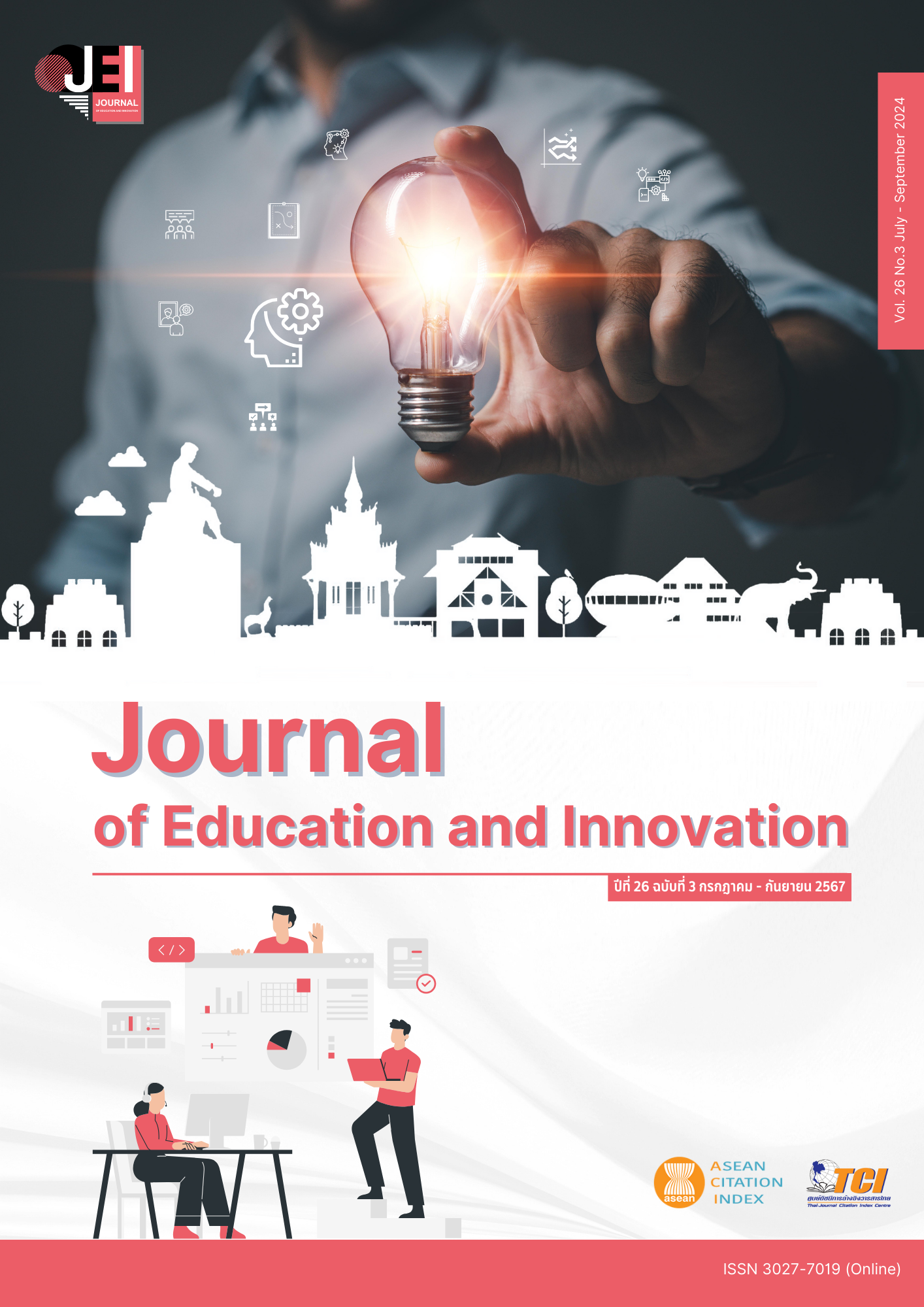ASSESSING THE EFFECTIVENESS OF METACOGNITIVE SCAFFOLDING IN ENHANCING LEARNERS' AGENCY AND AUTONOMY IN NIGERIAN SECONDARY SCHOOLS
Main Article Content
Abstract
Metacognition is the process of thinking about one's own thinking. It involves awareness of one's own cognitive processes, such as planning, monitoring, and evaluating one's own learning. Agency is the ability to act independently and make one's own choices. Autonomy is the ability to self-govern and be self-directed. Metacognitive scaffolding can help to enhance learners' agency and autonomy by providing them with the tools and support they need to take control of their own learning. This study investigated the effectiveness of metacognitive scaffolding in enhancing learners' agency and autonomy in secondary students in Nigeria. The study involved an intact group of 100 students in senior secondary class Two selected through a simple random technique. The students were randomly assigned to either the treatment group or the control group with each having 61 and 39 students respectively. The treatment group received metacognitive scaffolding in the form of think-alouds, self-monitoring, and self-assessment. Test –retest method was used to assess the students. The instruments were administered first before the administration of the treatment, while it was readministered six weeks after the treatment. The students in the treatment group were taught how to use metacognitive strategies to improve their learning, while the control group did not receive any metacognitive scaffolding. The results of the study showed that the experimental group, which received metacognitive scaffolding, outperformed the control group on measures of agency and autonomy. The findings of this study suggest that metacognitive scaffolding is an effective way to enhance learners' agency and autonomy.
Article Details

This work is licensed under a Creative Commons Attribution-NonCommercial-NoDerivatives 4.0 International License.
The owner of the article does not copy or violate any of its copyright. If any copyright infringement occurs or prosecution, in any case, the Editorial Board is not involved in all the rights to the owner of the article to be performed.
References
Afolabi, A. (2015). The Effect of Metacognitive Scaffolding on Students’ Agency and Autonomy in secondary schools in Nigeria. International Journal of Academic Research in Business and Social Sciences, 5(12), 348-357.
Agu, P. A., & Iyamu, C. O. (2020). Effect of metacognitive scaffolding teaching strategy on secondary school physics students’ achievement and attitude to thermal energy. International Journal of Scientific Advances, 1(2), 100-104.
Azevedo, R., & Hadwin, A. F. (2005). Scaffolding self-regulated learning and metacognition—Implications for the design of computer-based scaffolds. Instructional Science, 33(5-6), 367-379.
Azevedo, R., Guthrie, J. T., & Rassmussen, C. (2013). Metacognition: A Critical Factor in Computer-supported Learning. In J. V. Halderman, & A. J. Hester (Eds.), Handbook of research on educational communications and technology (pp. 505-522). New York, NY: Routledge.
Chang, Y. C., Chang, Y. C., & Chang, Y. C. (2016). Metacognitive Scaffolding for Promoting Students' Understanding of Sustainability Issues. Sustainability, 8(9), 1001.
Efklides, A. (2011). Interactions of metacognition with motivation and affect in self-regulated learning: The MASRL model. Educational Psychologist, 46(1), 6-25.
Efklides, A., Papageorgiou, K., & Kiosseoglou, I. (2010). Metacognitive scaffolding in self-regulated learning: Effects on learning outcomes and self-regulation. Learning and Individual Differences, 20(2), 163-169.
Flavell, J. H. (1979). Metacognition and cognitive monitoring: A new area of cognitive–developmental inquiry. American Psychologist, 34(10), 906-911.
Flavell, J. H. (1979). Metacognition and cognitive monitoring: A new area of cognitive-developmental inquiry. American Psychologist, 34(10), 906-911.
Hadwin, A. F., Winne, P. H., & Stockley, D. B. (2000). Impact of collaborative scaffolding on cognitive elaboration during problem solving. Journal of Educational Psychology, 92(1), 123-133.
Huertas-Bustos, A., López-Vargas, O., & Sanabria-Rodríguez, L. (2018). Effect of a Metacognitive Scaffolding on Information Web Search. Electronic Journal of e-Learning, 16(2), 91-106.
Lai, E. R. (2011). Metacognition: A literature review. Pearson Research Report.
Li, Y., Winne, P. H., & Hou, H. (2012). Metacognitive scaffolding in computer-based learning environments: Effects on learning outcomes and self-regulation. Computers in Human Behavior, 28(1), 321-328.
Schraw, G., & Moshman, D. (1995). Metacognitive theories. Educational Psychology Review, 7(4), 351-371.
Smith, A., Smith, B., & Smith, C. (2017). Metacognitive scaffolding and students' attitudes towards sustainability. Journal of Sustainability Education, 10(1).
Winne, P. H., & Hadwin, A. F. (2011). The use of self-regulated learning strategies in mathematics problem solving. Learning and Individual Differences, 21(1), 128-134.
Zimmerman, B. J., & Martinez-Pons, M. (1986). Development of a structured interview for assessing student use of self-regulated learning strategies. American Educational Research Journal, 23(4), 614-628.
Zohar, A., & Dori, Y. J. (2003). Higher order thinking skills and low-achieving students: Are they mutually exclusive? The Journal of the Learning Sciences, 12(2), 145-181.


